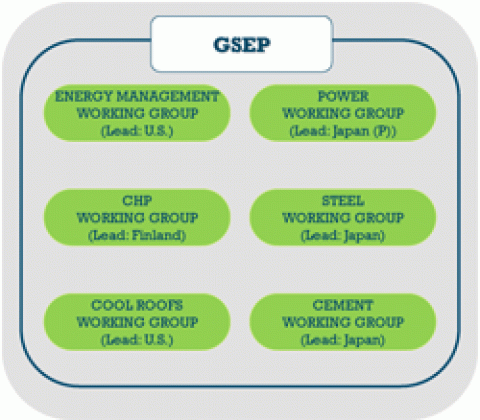The U.S. Department of Energy (DOE) has supported the Superior Energy Performance (SEP) program, which provides industrial facilities and commercial buildings a framework for achieving continual improvement in energy efficiency while maintaining market competitiveness. SEP aims to provide a transparent, globally accepted system for energy management and continuous energy performance improvement.
Consistent with this goal, the program serves as the basis for the Global Superior Energy Performance Partnership (GSEP), a multi-country effort to create and harmonize nationally accredited energy performance certification programs. The purpose of GSEP is to significantly cut global energy use by:
- Encouraging the owners and managers of industrial facilities and commercial buildings to pursue continuous improvements in energy efficiency
- Promoting public-private partnerships for cooperation on specific technologies or in individual energy-intensive sectors.
The United States leads the GSEP Energy Management Working Group, which comprises energy management, measurement and verification, and qualified workforce task forces. This working group has three main strategic objectives:
- Increase the implementation of energy management in the industrial and buildings sectors in order to improve energy efficiency and energy performance on an ongoing basis
- Measure and verify energy performance improvements on a consistent basis
- Build a qualified workforce of professionals with expertise in the fields of energy management, energy efficiency, and measurement and verification.
SEP supports the International Organization for Standardization (ISO) 50001 voluntary international energy management standard as a foundational tool. Based on broad applicability across national economic sectors, the ISO 50001 standard alone could eventually influence up to 60% of the world's energy demand. DOE supports the ISO 50001 standard as an approach for U.S. industrial and commercial facilities to plan, manage, measure, and continually improve energy performance. DOE actively contributed to the U.S. Technical Advisory Group (TAG), which is the U.S. delegation to PC 242, the ISO project committee that developed the standard. The U.S. TAG led international negotiations to ensure that ISO 50001 preserves the U.S. emphasis on management support and data-driven energy performance.


